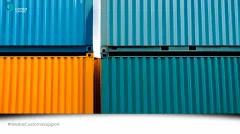What is IPR?
Inward Processing Relief, or IPR, is a procedure enabling you to process, modify, destroy, or repair imported goods without the obligation to pay customs duties.
It’s a form of economic licence which allows you to gain an advantage when producing or handling raw products. You are paying less overall for those materials, so you can reexport to the international market with a more competitive price compared to those who’ve paid tax during import.
You can also use IPR to pause the duty if you are unsure where the goods will be sold to. If you sell domestically, then you submit another import clearance to pay the duty. If you sell internationally, you close the process with the export clearance accordingly.
The batch does not need to be sold in its entirety to domestic companies or internationally. You can submit two declarations later to advise customs where everything went.
IPR is just one of the solutions we use when providing duty management services. It depends on your product, origin, and onward destination whether it will be the best one for you.
What kind of products is IPR suitable for?
IPR is for goods that are reworked or processed in some way, hence the name Inward Processing Relief. This can apply to several industries and sectors, as supply chains are often more complicated than we realise.
For example, you can bring hard fat into the EU, melt it down and mix it into your food product, then reexport it with IPR. Another use is for refurbishing machines, where you import an old unit and repair or update it with new components before reexporting.
What is the time limit on Inward Processing Relief?
The standard time limit is three months, but some industries are granted up to six months because their process is naturally longer. In some cases, you can get a special agreement with customs that allows for even more time, but this is an option in conjunction with using a bonded warehouse.
What are the advantages of IPR?
Depending on your commodity, you might be able to avoid paying duty on wasted materials.
For example, if you know that 10 grams of every 100 will be lost in production, you’d normally have to pay the duty on that wastage. However, under IPR, you would be able to write that off and only pay for the material that was included in the final product being sold to a domestic buyer.
So, if you sold the product 50/50 between domestic and international buyers, you’d only pay the duty on the 45 grams included in the sale instead of the 50 grams required to make it.
IPR requires very good admin and expertise to make full use of it, like this.
How long does it take to get a licence for Inward Processing Relief?
At a minimum, three months, but the whole process can take nine months or even longer.
It is essential to get your application completed to a high standard before submitting it, as it is a lot harder to get approval following several queries and amendments, compared to when your business looks like a good candidate from the outset.
Need help with IPR?
Customs Support provides help with Inward Processing Relief throughout the UK and EU. From requesting the licence to managing your administration, we are here to ensure you get the most value from your IPR function as possible whilst remaining compliant. Contact one of our experts to get started today.














